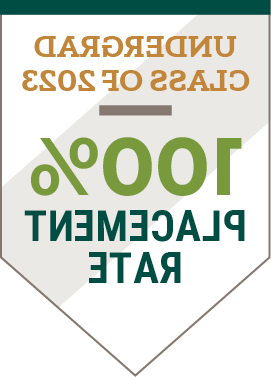
Engineer a More Sustainable, Safer Society
Get on the path to designing a more sustainable world. A Bachelor of Science in Environmental Engineering from Clarkson University helps you lead the charge.
Why Major in Environmental Engineering at Clarkson?
Environmental engineering began as a subdiscipline of civil engineering. Today, increasing focus on preserving our world now fuels demand for innovative professionals equipped to:
- Improve air, soil and water quality.
- Develop solutions for pollution control.
- Consider human influence on the environment.
- Create more sustainable communities, infrastructure and waste management strategies.
The program’s curriculum reflects environmental engineering’s multidisciplinary focus. Take courses in environmental engineering, earth science, chemistry, ecology, wastewater treatment, physics, mathematics, water resources, environmental quality, systems and hazards. Put elective credits toward a minor to develop a specialization.
We train our students to bring technical expertise and an innovation-driven mindset to the workforce to develop more cost-effective operations, processes and products and ensure build safety and excellence through all stages of a project. Learn to analyze problems and devise solutions prioritizing the public good using a broad yet specialized knowledge base.
At the same time, you get taught by faculty leading the field through innovation. As one example, our environmental engineering faculty have developed a prototype for PFAS mitigation and destruction.
And, our Environmental Engineering majors had a 100 percent placement rate in 2023.
Curriculum
- Groundwater hydrology and geochemistry
- Water resources engineering
- Human exposure analysis
- Sustainable development engineering
- Solid waste management and landfill design
- Economic principles and engineering economics
- Fluid mechanics
- Geographical information systems
- Global climate change: science, engineering and policy
- Atmospheric chemistry





